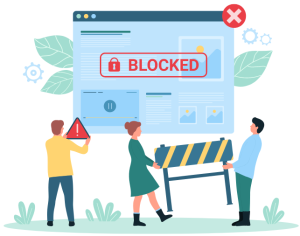Tumblr is like a cross between a blog and Twitter: It's a streaming scrapbook of text, photos and/or videos and audio clips. Users create and follow short blogs, or "tumblelogs," that can be seen by a...
You're almost there...
Register or Login to your account to view requested content.

Joining the Cyber Safety Plus Membership has many benefits including:
- Exclusive Articles and Practical Advice
- Extensive Online Training Library
- Monthly Live Zoom Meetings
- Supportive Parent Community
- And More!



